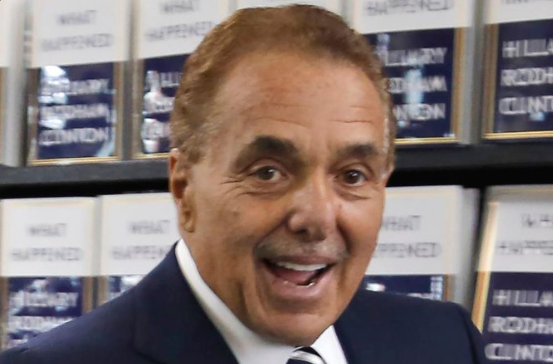Leonard Riggio, the visionary founder of Barnes & Noble, passed away at the age of 83 following a battle with Alzheimer’s disease. He was celebrated for transforming Barnes & Noble from a single bookstore into a bookselling empire, famously known as “The World’s Largest Bookstore,” and for pioneering the concept of the bookstore “superstore,” which combined a vast selection of titles with a welcoming, comfortable environment Fox Business – and Fox Business
Leonard Riggio, a bold and self-made entrepreneur who revolutionized the publishing world by transforming Barnes & Noble into the most dominant bookseller in the United States, has passed away at 83. Riggio died on Tuesday after a brave battle with Alzheimer’s disease, as confirmed by his family. He had stepped down as chairman in 2019 when the company was sold to the hedge fund Elliott Advisors.
Leonard Riggio, who built Barnes & Noble into largest US bookstore chain, dies at 83 https://t.co/D90WxfAbc5 pic.twitter.com/CZc1HYPAWZ
— New York Post (@nypost) August 27, 2024
Barnes & Noble released a statement honoring Riggio’s leadership, which “spanned decades, during which he not only grew the company but also nurtured a culture of innovation and a love for reading.”
Riggio’s journey with Barnes & Noble began in 1971 when he took out a $1.2 million loan to purchase the company’s name and its flagship store on Manhattan’s lower Fifth Avenue. Over the next two decades, he expanded aggressively, acquiring hundreds of stores. By the 1990s, he had created a nationwide network of “superstores” that combined the advantages of a chain—discount pricing and vast inventory—with a welcoming atmosphere, complete with couches, reading chairs, and cafes.
“Our bookstores were designed to be welcoming as opposed to intimidating,” Riggio told The New York Times in 2016. “These weren’t elitist places. You could come in, grab a cup of coffee, sit down, and read a book for as long as you like. These were innovations that no one thought possible.”
Raised in a working-class family in New York City, Riggio preferred the company of his childhood friends to that of fellow business executives and was known informally as “Lenny” among his associates. Despite his approachable demeanor, he was a formidable figure in the book industry, capable of influencing the success or failure of a book simply by deciding its placement in stores. He once attempted to acquire Ingram, the largest book wholesaler in the country, but withdrew after encountering governmental pushback.
By the late 1990s, Barnes & Noble was a powerhouse, accounting for roughly one in every eight books sold in the U.S. The chain’s front-table displays were so coveted that publishers paid substantial fees to have their titles featured. Thousands of independent bookstores closed, struggling to compete with Barnes & Noble’s aggressive expansion, despite Riggio’s claims that his stores were opening up markets in underserved neighborhoods.
Barnes & Noble became so emblematic of corporate dominance that it was parodied in the 1990s romantic comedy “You’ve Got Mail,” which featured Tom Hanks as an executive of a fictional bookstore chain and Meg Ryan as the owner of a small, independent shop threatened by the chain’s expansion.
Leonard Riggio, who forged a bookselling empire at Barnes & Noble, dead at 83 https://t.co/JgwUM8EMsB pic.twitter.com/UqaYDPomoC
— The Independent (@Independent) August 28, 2024
For many years, the independent bookselling community viewed Barnes & Noble as a major adversary. The American Booksellers Association (ABA) even sued the chain in the 1990s for unfair trade practices, a case that was eventually settled out of court. Tensions ran high at industry events, with independent booksellers often expressing open hostility toward Barnes & Noble representatives.
As the 2000s began, Barnes & Noble faced new challenges from the rise of internet commerce. Despite its strong position in physical retail, the company struggled to compete with Amazon, which branded itself as “Earth’s Biggest Bookstore.” Amazon’s innovations, such as the Kindle e-reader and the Amazon Prime subscription service, quickly eroded Barnes & Noble’s market share.
“We’re great booksellers; we know how to do that,” Riggio admitted in 2016. “We weren’t constituted to be a technology company.”
Barnes & Noble launched its own website in the late 1990s and introduced the Nook e-reader, but these efforts fell short of stopping Amazon’s rise. Even after the collapse of Borders, Barnes & Noble had to close more than 100 stores between 2009 and 2019 due to financial difficulties.
By the time Riggio retired, the relationship between Barnes & Noble and independent booksellers had shifted. No longer seen as the primary threat, Barnes & Noble became an unexpected ally in the fight to preserve brick-and-mortar stores against the dominance of Amazon. At a 2018 booksellers convention, Riggio and ABA CEO Oren Teicher, once business rivals, appeared together, signaling a new era of cooperation.
“My standing here, doing what I’m about to do, would have been impossible to imagine several years ago,” Teicher said at the event. “Our business is stronger when there is a vibrant network of physical bookstores across the country.”
Riggio’s career in bookselling began in the 1960s when he opened SBX (Student Book Exchange) after dropping out of college. SBX quickly succeeded, allowing him to acquire Barnes & Noble’s Manhattan store in 1971. Over the years, he became known not just for his business acumen but also for his philanthropy and support of liberal political causes, often aligning himself with Democratic politicians and advocating for higher worker wages.
REST IN PEACE 🙏 Leonard Riggio, a brash, self-styled underdog who transformed the publishing industry by building Barnes & Noble into one of the country’s largest booksellers, has died at age 83. https://t.co/H9m1ozmRzu pic.twitter.com/O69rskLAiy
— 10 Tampa Bay (@10TampaBay) August 28, 2024
Even as a successful businessman, Riggio maintained a deep concern for the underprivileged, a sentiment reflected in his life and career. “Money can become a burden, like something you carry on your shoulders,” he told New York magazine in 1999. “My nature is to be a ball-buster, but my role is to help people.”
More
James Daunt, the current CEO of Barnes & Noble, praised Riggio’s contributions, stating, “Len’s vision and entrepreneurial spirit transformed the retail landscape.” Riggio was known for fostering a culture of innovation and a love for reading, making bookstores more accessible and less intimidating by allowing customers to browse freely, read, and even enjoy a cup of coffee on the premises Fox Business
Major Points:
- Riggio, who passed away at 83, transformed Barnes & Noble into the leading bookseller in the U.S., creating a network of superstores known for their welcoming environment.
- Riggio revolutionized the bookstore experience by combining discount pricing with comfortable spaces for reading and socializing, setting a new standard for the industry.
- Riggio’s aggressive expansion led to tensions with independent booksellers and legal battles, positioning Barnes & Noble as a dominant force in the market during the 1990s.
- Despite early success, Barnes & Noble struggled against the rise of Amazon, which outpaced the chain with technological innovations like the Kindle and online sales.
- By the time of Riggio’s retirement, Barnes & Noble was no longer seen as the primary threat to independent bookstores but as a potential ally in preserving physical retail against Amazon’s dominance.
Conner T – Reprinted with permission of Whatfinger News


